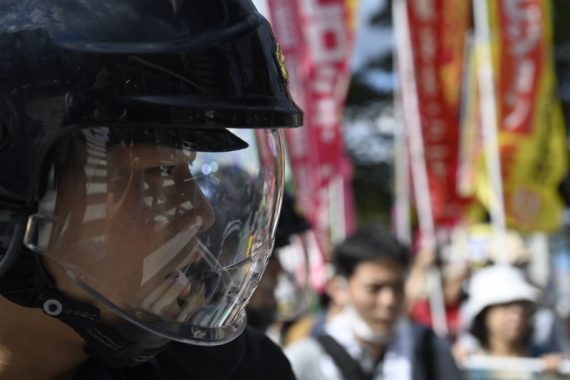T
he war in Ukraine has reshaped Russia’s military strategy, elevating the importance of non-strategic nuclear weapons (NSNWs) as a deterrent against NATO, according to a report by the International Institute for Strategic Studies (IISS) released on Monday. The study suggests that Moscow’s confidence in its conventional forces has waned, leading to a greater reliance on NSNWs, which have a range of up to 5,500 km (3,400 miles).
Non-strategic nuclear weapons, including tactical arms designed for battlefield use, have gained significance for Moscow in potential conflicts. The report highlights the question of whether Russia might be more inclined to deploy NSNWs, considering a perceived lack of Western resolve to respond with nuclear force.
The IISS report notes, “The Russian perception of the lack of credible Western will to use nuclear weapons or to accept casualties in conflict further reinforces Russia’s aggressive NSNW thought and doctrine.” It raises concerns about the possibility of Russia escalating a conflict using NSNWs, either to prevent NATO engagement or to coerce war termination on Russian terms.
Lowering the threshold for nuclear use
President Vladimir Putin has denied wielding nuclear threats, but some of his statements have been interpreted as such in the West. The report points to a debate within Russian military circles about potentially lowering the threshold for nuclear use, with concerns arising from the military’s failure to decisively win the Ukraine war.
William Alberque, the author of the IISS report, explained that the fear of emboldening the West has fueled the ongoing nuclear debate in Russia. He noted that Western intelligence would likely detect signals of NSNW preparation, including weapon movements and possibly conventional strikes near the target area to disable defenses.
Responding to such a scenario poses challenges for the U.S. and NATO. Alberque stated, “Once the other side crosses the nuclear threshold, how do you prevent the logic of escalation, escalation, escalation to annihilation? How do you contain it, how do you keep it down? This is one of the hardest problems, this is a problem that has existed since the dawn of the nuclear age.”
Russia’s nuclear posture remain a critical concern for global security
As geopolitical tensions evolve, the strategic implications of Russia’s nuclear posture remain a critical concern for global security. The study underscores the complexities of managing nuclear dynamics in an increasingly uncertain international landscape.
The IISS report suggests several policy considerations for the US and its allies:
Monitor Russian Debates: Continuously track Russian-language military journals and publications for insights into the general direction of Russia’s nuclear doctrine debates.
Focus on Force Posture Changes: Pay attention to alterations in Russia’s force posture, especially nuclear-storage sites, exercise scenarios, and radiological-defence troops’ interactions with high-readiness forces.
Enhance Awareness and Understanding: Improve awareness and understanding of Russia’s NSNW thought, doctrine, and force posture through better coordination, planning, exercising, and public outreach.
Invest in Expertise: Increase the expertise base on NSNW thought and doctrine within the governments of the US and its allies, engaging with academia, think tanks, and mass media.
In conclusion, the report underscores the critical nature of understanding Russia’s evolving nuclear doctrine, particularly concerning NSNWs, and the importance of proactive measures by the West to address emerging challenges in Euro-Atlantic security.
Sources: Reuters, and IISS
Recommended





